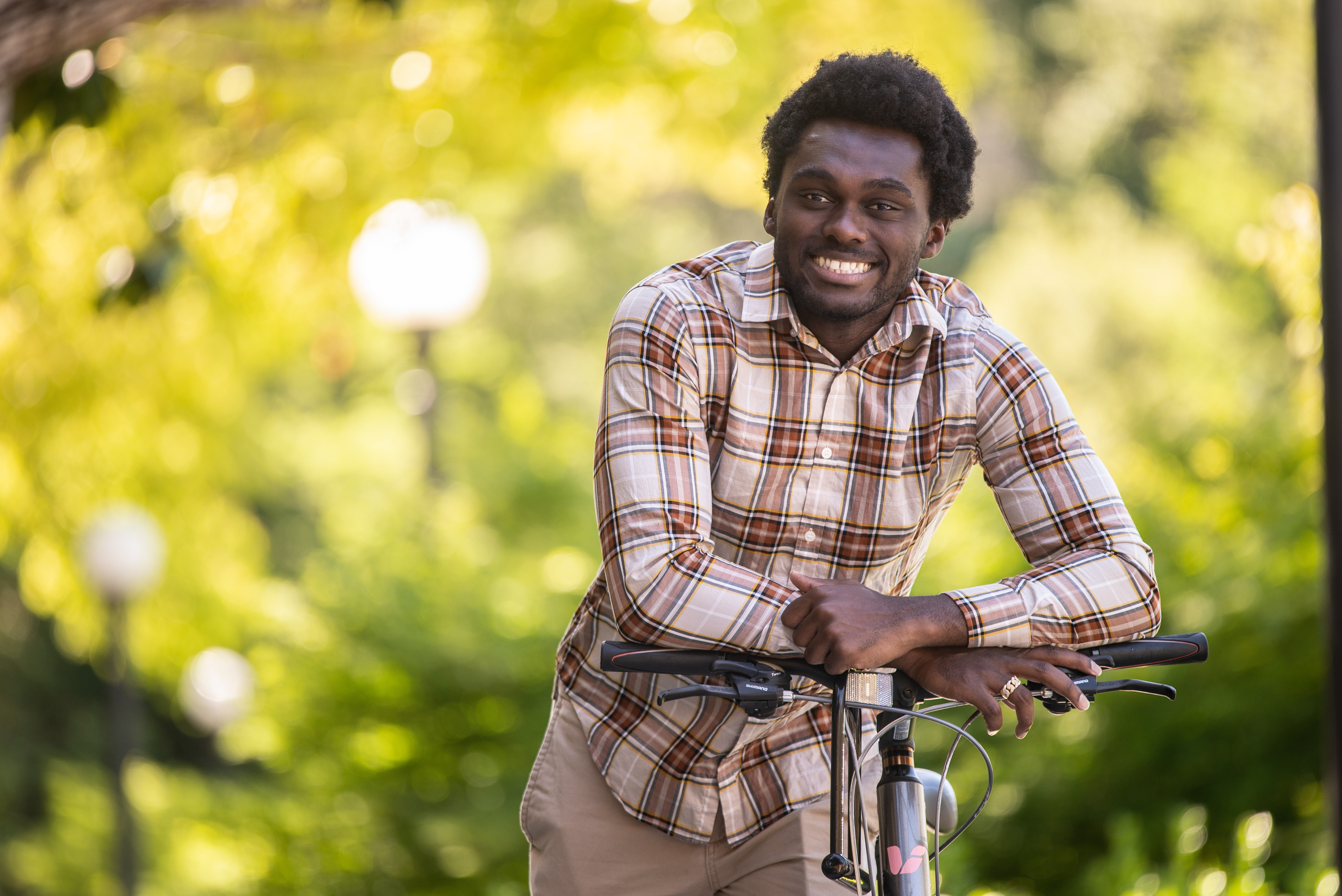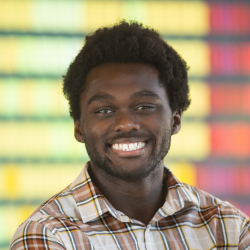
Cordy McJunkins
You’ve arrived at spring quarter! How would you describe your experience so far?
This experience has been so enriching due to the variety of classes I've been able to take as a graduate student here and the number of incredible people I've gotten to meet in the GSE. Many of the classes I've taken have helped me connect the dots on various educational issues and understand how institutions and education leaders have a role to play in improving the educational opportunities of all students, especially those from underserved populations. At the same time, chatting with people in the GSE who come from a wide variety of backgrounds has helped expose me to the nuance and diversity in education reform across the United States.
What is unusual about POLS?
The in-depth conversations we get to have on current education issues. I've never gotten to be in an environment in which the goal of the program is to help gain more in-depth knowledge on a variety of issues that impact children at some point in their lives. We've covered topics such as higher education debt, teacher retention, early childhood education, and many other topics. Rather than base every conversation on research papers, we get to argue and wrestle with deep philosophical questions surrounding what education should ideally look like. I think this has really stood out to me as the hidden gem of the POLS program and has pushed me to think more critically about what my role will be in transforming education.
Please tell us a bit about your favorite course.
My favorite course so far has been Research and Policy on Postsecondary Access with anthony antonio. This class focused on the barriers that students face transitioning from high school to college, and how various institutions have helped or hindered progress in getting marginalized students to and through college. This class allowed me to talk about my lived experience as a first-generation, low-income student who had no idea how to traverse the labyrinth that is higher education. At the end of the class, I felt more informed about the pitfalls that still exist in higher education and where my lived experience could be informative in making real change in postsecondary access.
Most POLS students come in with an idea of the change they would like to see in education. What is that for you?
I am really interested in helping transform high school education to be more relevant to the needs of high school students as they prepare for the workforce. I vividly remember how frustrated I felt looking back at my high school experience and realizing how many valuable skills (e.g., financial literacy, civic engagement) were never taught in the classroom. Thinking about the advantages more wealthy families have when it comes to accruing these skills, I believe it is necessary that public schools incorporate these skills in mandatory classes to better prepare all students for the workforce, especially those who might go directly into the workforce after graduating high school.

What have you learned about leadership in POLS?
I've learned that leadership can look different based on the skills and talents you possess. I always felt that leadership meant that you needed to be at the forefront and guiding people towards a certain mission or goal. However, the conversations and guest speakers we've had in this program have shown me that leadership can also include the work behind the scenes that we often take for granted—things like grassroots organizing out in the community trying to spark change. At the end of the day, leadership requires you to know yourself and understand how you can use your strengths and weaknesses in the best way possible.
What are your career plans and goals?
After graduating, I'll be going to Harvard Law School; I hope to spend my career studying education law and arguing on behalf of children receiving a more equitable allocation of resources and support. [I want to help ensure] that all kids can succeed, regardless of their race or socioeconomic status. One of my career goals is to potentially run for office and help bring light to several educational issues on a larger stage.
What advice do you have for students who are trying to decide whether to attend the POLS program?
I feel like the POLS program provides such a strong opportunity to hear what your classmates have expertise on and how that might conflict with or confirm some of your own beliefs. For me, I really love the cohort model that the POLS program offers, where I can chat with my classmates every Friday [in seminar] and hear about how what they're learning is relevant to the conversation we have in [seminar]. While I've learned a lot from my professors here, I feel like I wouldn't have gotten as high-quality of an experience if I didn't get the chance to hear from my classmates about their experiences and beliefs.
Any tips for incoming students to get the most out of their time at Stanford?
I think the most important thing is to push yourself to take classes that you may not know that much about. Education is such a complex ecosystem with many moving parts, and I think anyone who is interested in pursuing a career in education should try and take classes on a variety of topics in both primary/secondary education topics and postsecondary topics. I've found it fascinating to learn how other parts of education have influenced the work that I'm most interested in doing. While I think it's important to take a healthy number of classes, I would encourage you to push yourself to take challenging classes. You never know what you might find.

Photos by Rod Searcey
